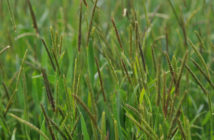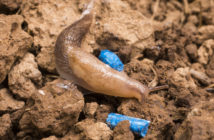‘Backward’ crops this season will need a good early dose of nitrogen, and forward crops may well need the same, where Soil Nitrogen Supply (SNS) levels are low as they could run out of steam very quickly, is the message from leading crop production specialists Hutchinsons.
Rob Jewers, Hutchinsons fertiliser and crop nutrition specialist points out that even where fields have high SNS levels, they will still require a good early application of nitrogen of at least 60-80kg/ha.
“Learnings from extensive trials at our Helix Farms and Regional Technology Centre’s over the past few years has shown us that crops need a good base foundation of soil applied nitrogen, granular or liquid, to grow biomass and retain tillers to maximise yield potential.”
“Crops should receive a good base application of nitrogen anywhere between 120-180kg/ha depending on individual circumstances and final applications then tailored according to developments in the season, end market etc,” he adds.
SNS levels
SNS in spring 2022 was higher than in 2021 due to low winter rainfall and mild conditions meaning that mineralization of N continued right the way through last winter, and in many cases it was possible for nitrogen applications to be cut back without any noticeable impact on production.
“However, the results that have been coming back from the laboratory this year are looking quite varied for SNS; the figures are generally lower than last year due to higher winter rainfall and cooler temperatures and are more in line with what we would expect to see in a “typical” year.
“With more normal SNS results this year, RB209 predicted rates can be used along with any break even ratio (BER) adjustment for N & grain price. Where BER calculations or SMN Plus results suggest cutting back on nitrogen rates, for example from 200kg/ha to 160kg/ha, apply all nitrogen early – by the end of March,” he says.
There are many tools and resources available to assist with final nitrogen recommendations such as the AHDB Calculator or the automatic BER adjustment in Omnia.
“The important underlying message to this is that with generally lower SNS than last year, there might not be as much opportunity to cut back on nitrogen rates,” he points out.
“Whilst crops may look good now, its important they don’t run out of ‘oomph’ later in the season when they need it. So it is important to know your baselines!”
Go early with Urea
Growers using urea this spring should plan their first applications as soon as possible if not already done so,” advises Mr Jewers. “Urea takes longer to convert to plant available nitrate, with ammonium nitrate being 50% plant available as soon as it is in the soil solution.
“As a rule of thumb, urea applications should be made around 10 days ahead of ammonium nitrate timings.”




